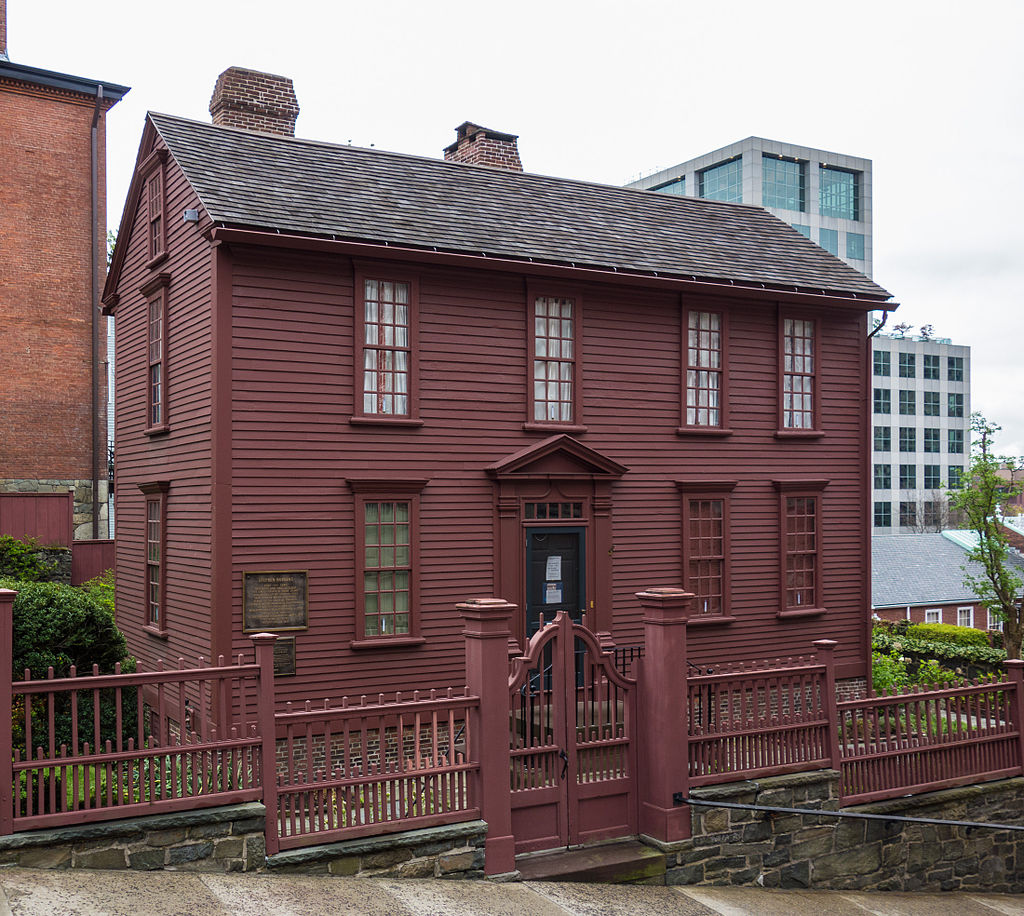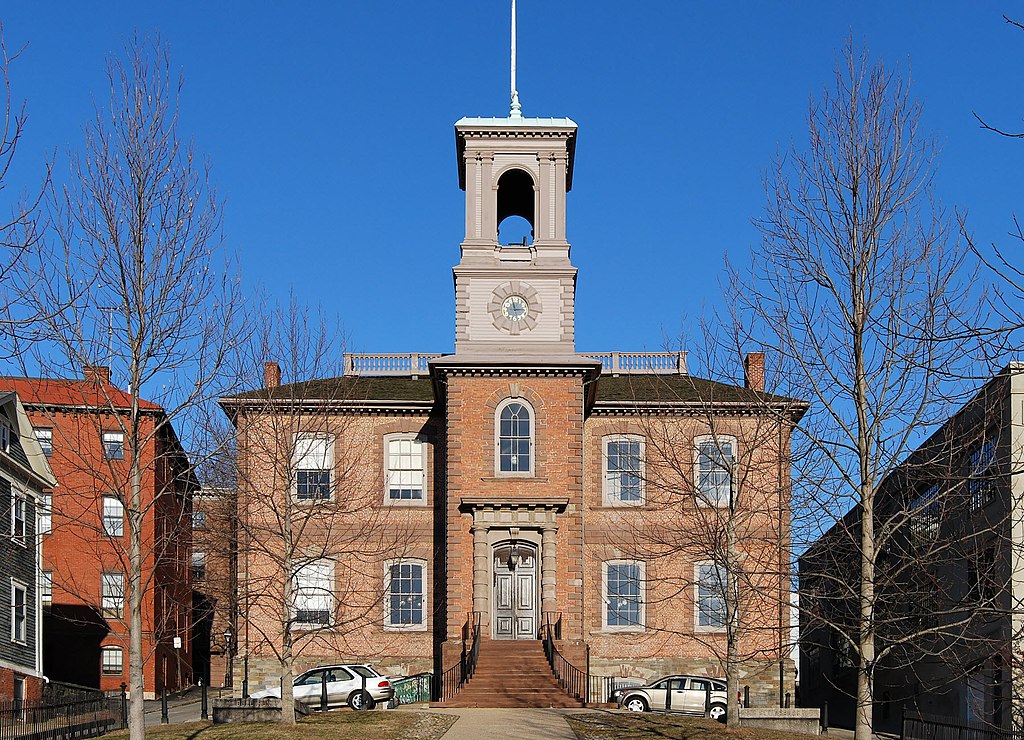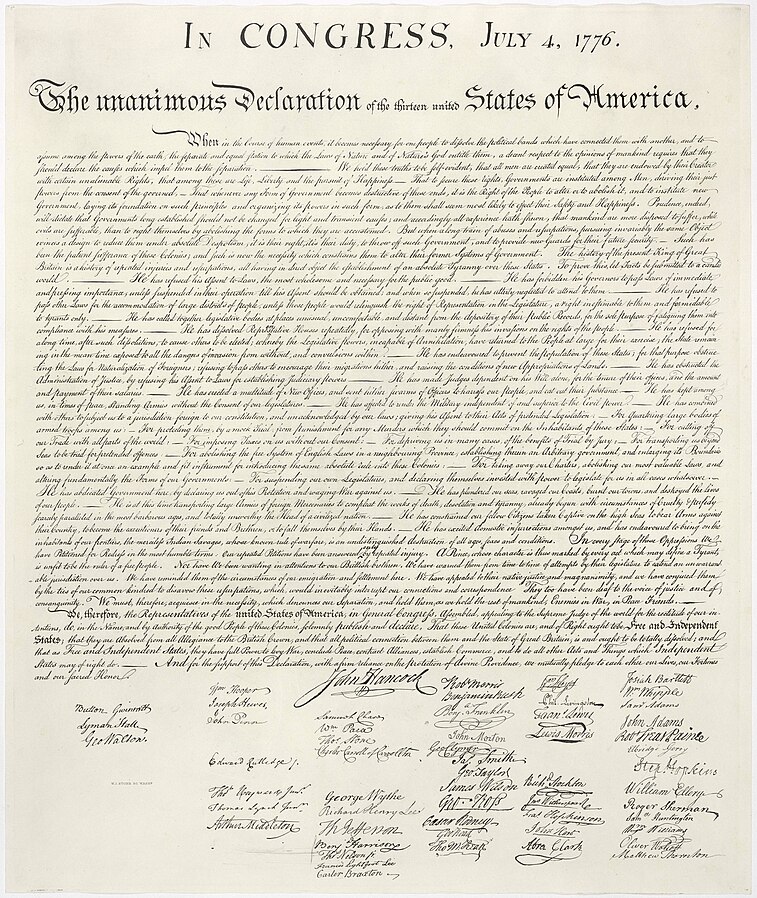After being at war with the British empire for about a year, the people of Rhode Island decide that any hope of reuniting with their mother country is useless and the only viable solution left is to declare independence.
26 minutes | 1775 - 1776
Hear About:
📜The initial confrontations between the British Navy and the towns around Narragansett Bay.
📜Why Rhode Island was NOT the first colony to declare independence but why their act of defiance on May 4th 1776 was still an important part of the American Revolution.
📜The celebrations that took place in Newport when the Declaration of Independence was ratified in Rhode Island.

William Barton
As we'll see throughout a couple of episodes in this season, William Barton was a daring soldier who was willing to do whatever it took to ensure the patriots won the Revolutionary War.
Photo credit: https://en.wikipedia.org/wiki/William_Barton_(soldier)#/media/File:General_William_Barton.jpg
Theodore Foster
Shortly after graduating from The College of Rhode Island, known today as Brown University, Theodore Foster was fortune enough to witness George Washington parade through Providence with some of his troops during the Spring of 1776.
Photo credit: https://en.wikipedia.org/wiki/Theodore_Foster#/media/File:Theodore_Foster.jpg
Jonathan Arnold
Along with being a surgeon in the Continental Army and the head of the military hospital in Providence, Arnold is also the statesman who authored the act that had Rhode Island repeal its allegiance to King George III.
Photo source: https://en.wikipedia.org/wiki/Jonathan_Arnold#/media/File:JonathanArnold.jpg

Stephen Hopkins House | Providence, RI
Along with being the on and off Governor of Rhode Island, Stephen Hopkins also authored one of the most important pamphlets during the early years of the American Revolution (see episode 3) and was a signed of the Declaration of Independence. As if he needed to add anything else to his resume, his house also acted as General George Washington's headquarters for a few days in 1776. That house still stands in Providence today.
Image source: https://en.wikipedia.org/wiki/File:Stephen_Hopkins_House_2.jpg

The Old State House | Providence, RI
One of the biggest myths of our state's history is that on May 4th 1776 Rhode Island became the first colony to declare independence. Unfortunately, that is not accurate. Although they did renounce their allegiance to King George III on that date they were still loyal to Parliament, meaning that they had yet to completely break ties with the British empire. Either way, the act was still a daring move to make and once again put Rhode Island at the vanguard of the American Revolution.
Image source: https://en.wikipedia.org/wiki/Old_State_House_(Providence,_Rhode_Island)#/media/File:Old_State_House_RI.jpg

The Declaration of Independence
On July 19th the Rhode Island government ratified the Declaration of Independence, officially revoking their allegiance to Great Britian. Due to the fact that their colony's government was the most democratic society in the entire world at the time, their delegates decision to ratify the document clearly illustrates just how much the people of Rhode Island craved independence.
- Rhode Island's Founders: From Settlement to Statehood by Patrick T. Conley
- A History of the Narragansett Tribe of Rhode Island by Robert A. Geake
- Rhode Island: A History by William G. McLoughlin
- A History of Kingston, R.I., 1700 - 1900 by Christian McBurney
- Colonial Rhode Island: A History by Sydney V. James
- History of East Greenwich, Rhode Island, 1677-1960: With related genealogy by Martha R. McPartland (Author), S. Jerome Hoxie (Illustrator)
- Washington's General: Nathanael Greene and the Triumph of the American Revolution by Terry Golway
- The Life and Recollections of John Howland by Edwin Martin Stone
- The Glorious Cause by Robert Middlekauff
- The Cause: The American Revolution and Its Discontents by Joseph J. Ellis
- July 19, the Real Rhode Island Independence Day by Patrick T. Conley
- Letter To George Washington from Nicholas Cooke, 4 April 1776 by Founders Online
- Theodore Foster Papers by Theodore Foster